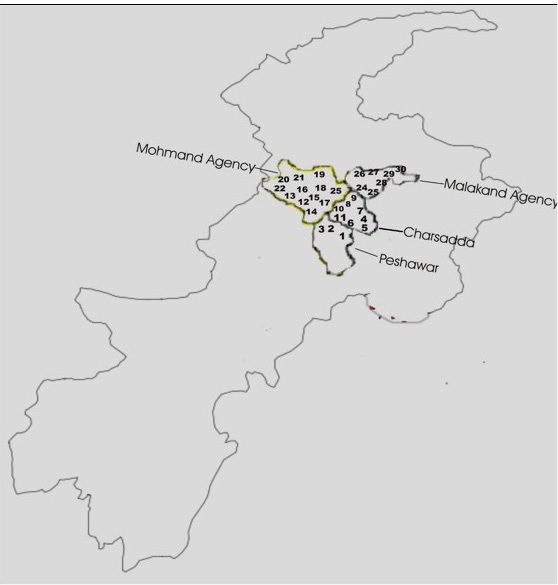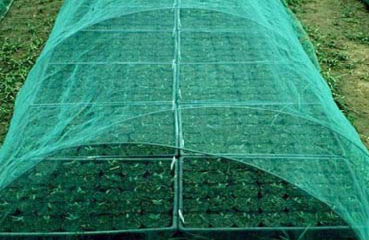Tomato yellow leaf curl virus in Tomato Crop of Khyber Pakhtunkhwa Province: Virus and Vector Prevalence and Transmission Properties
Tomato yellow leaf curl virus in Tomato Crop of Khyber Pakhtunkhwa Province: Virus and Vector Prevalence and Transmission Properties
Ghufran ul Haq1*, Muhammad Arif2, Asad Ali2 and Mian Inayatullah3
Map of Khyber Pakhtunkhwa showing Peshawar, Charsadda, Mohmand Agency and Malakand Agency projected to show frost falling, partially frost-falling and frost-free tomato growing areas. Locations where viral diseases of tomato and their vectors were reported and where samplings were made are indicated by a number.1: Sardar Garhi, 2: Faqir Abad, 3: Tarnab, 4: Abazai, 5: Tangi, 6: Tarangzai, 7: Utmanzai, 8: Somanat, 9: Safdar Qala, 10: Mayar, 11: Abade, 12: Nawe Kali, 13: Kerrha, 14: Dewdheri, 15: Dheri, 16: Serai, 17: Nawekali (upper), 18: Kaskuroona, 19: Marghan, 20: Yusuf Baba, 21: Taraki, 22: Daman, 23: Maluki, 24: Herosha, 25: Palai, 28: Harichand, 27: Jabanrh, 28: Rozi Band, 29: Palonow and 30: Mahdand.
Symptomatic naturally infected tomato plants showing severe stunting, marginal chlorosis, upward or downward, leaf curling, (upper) and flowers abortion and stem upright, yellowing, and curling (lower) in which Tomato yellow leaf curl virus (TYLCV) was detected by TAS-ELISA.
Whiteflies feeding on the underside of the leaves of tomato plants for acquiring TYLCV in the field.
Tomato plants of cultivar, Roma VF, covered under nylone net inside a screen house for studying transmission properties of TYLCV. Each category of plants was applied specific timing (upper), and plants under nylone net to which specific number of whiteflies were applied for transmission of TYLCV (lower).














